Tom Riley, a retired NASA instrument engineer and prolific author who believes AI offers tremendous potential for the world, has written a new book called "Dark Heat," and it pulls all of that together.
When Tom retired from NASA in 2014, he started coaching young people in science, technology. engineering and mathematics (STEM), and he quickly realized he needed to develop a detailed discussion of what today's generation must do about our climate crisis and how it will affect their future.
"The thing that struck me so strongly was that we owe our young people an explanation and some guidance on what to do in this very difficult time," he says. "We simply are not providing them with the direction they need."
To help achieve that, Riley decided on a series of books aimed at today's generation, with the third one, "Dark Heat," now available. Written with the assistance of AI, it's a novel that pairs two "want-to-be detectives," Sarah and her AI companion, Janet N, who go into action when a friend who was involved in black market smuggling of food goes missing.
"They go through a long, complicated search to find out what happened to their friend and who the black marketers were," explains Riley, who has two engineering degrees and is a veteran of more than 40 years in high tech, mostly in space operations.
"It became very clear that the problems of climate change were just so overriding that it was unfair for me to teach young people about space if they're going to be hit upside the head by the climate crisis," Riley says on the podcast. "So we had to convert over, and I had to do a lot of research on what the problems were, what the long term problems were, what the short term problems were, (and) what the breaking points were."
Then last March, "the large word AIs became available with ChatGBT 4, and all of a sudden we were sprinting past one of the big landmarks that was either going to make or break us. Consequently, we started this project to write a mystery with AI as a partner," he explains.
Check out the complete interview for more about Riley's efforts in preparing today's generation for climate change and the burgeoning growth of artificial intelligence.
Special Bonus/>Meanwhile, Riley is providing two signed copies of "Dark Heat" for the first two Lean to the Left listeners or viewers who request one. To win a copy, just send an email to bob@leantotheleft.net with Dark Heat in the subject line, and your name and mailing address in the body of the email. The first two requests will receive the book free of charge.
Here are some key topics we discuss in the interview:
- Climate change: doom and gloom or unicorns and rainbows?
- Individual action is needed -- now. What should young people do?
- How will climate change affect the world's food supply and what impact will that have on us in the U.S.?
- Can AI, including robots, be employed to cope with the climate crisis?
- As a space expert, do you believe there is life beyond Planet Earth?
- A look at the Kecksburg, PA UFO incident from 1965. What was it?
- Employment will be the area of biggest impact as artificial intelligence gains a foothold in the economy.
- For more info about Riley check out his website at
Show Notes
Climate author and space scientist Tom Riley is providing two signed copies of "Dark Heat" for the first two Lean to the Left listeners or viewers who request one. To win a copy, just send an email to bob@leantotheleft.net with Dark Heat in the subject line, and your name and mailing address in the body of the email. The first two requests will receive the book free of charge.
Meanwhile, Don’t forget to follow Lean to the Left at podcast.leantotheleft.net, and you can reach me at bob@leantotheleft.net. You can also follow us on social media…Facebook at The Lean to the Left Podcast. Twitter at LeantotheLeft1. YouTube at Lean to the Left, Instagram at BobGatty_leantotheleft, and TikTok at Lean to the Left.If you would take a minute to give us a review, that would be great. There are lots of podcast links on our webpage, podcast.leantotheleft.net, where you’ll also find our upcoming interview schedule and links to all of our podcasts.
I hope you’ll come back on a regular basis and check out our interviews with guests on topics that I hope you find interesting, entertaining, and enlightening.
Our interview shows stream weekly on Mondays, and depending on what’s going on, also on Thursdays, and most are produced as videos available on the Lean to the Left YouTube channel.
Also, let your friends know about this podcast and take a minute to subscribe yourself. Just go to podcast.leantotheleft.net to subscribe, check out the upcoming interview schedule, and listen to all of our episodes.
Remember, our goal is to be informative and entertaining as we comment on the latest developments in the news…you guessed it…with just a little lean to the left.
This show is part of the Spreaker Prime Network, if you are interested in advertising on this podcast, contact us at https://www.spreaker.com/show/4719048/advertisement
Show Transcript
Dark Heat: The Climate Change/AI Revolution
[00:00:00] Bob Gatty: We're living in a time of revolution, a time when the forces of climate change and artificial intelligence are converging in a way that will undoubtedly, dramatically change the world. That's our topic today, so stay with us.
[00:00:16] Tom Riley, a retired NASA instrument engineer and prolific author who believes AI offers tremendous potential for the world, has written a new book.
[00:00:28] It's called Dark Heat, and it pulls all of that together. Now, when Tom retired from NASA in 2014, he started coaching young people in STEM, that's science, technology. engineering and mathematics, he quickly realized that he needed to develop a detailed discussion of what they needed to do about our climate crisis and how it will affect their future.
[00:00:56] So that's what Tom Riley's books are all about. So Tom, thanks for being with us today on the Lean to the Left podcast. It's your second appearance with us, and we're happy to have you
[00:01:08] Tom Riley: back.
[00:01:09] Thank you for having me.
[00:01:11] Bob Gatty: Ha. Okay. Before we begin, Tom has provided me with two signed copies of Dark Heat to give away to listeners and viewers.
[00:01:22] So to obtain a copy, just send me an email with Dark Heat in the subject line, and your name and mailing address in the body of the email. The first two requests will receive the book free of charge. Now you want to send that to bob at lean to the left dot net. Now, Tom, tell us what you're trying to do with this book of yours.
[00:01:48] Tom Riley: All right the thing that struck me so strongly was that We owe our young people an explanation and some guidance on what to do in this very difficult times. And we simply not providing them with the direction they need and looking at how we could do that, you can write technical papers are all available all over YouTube and so forth.
[00:02:16] And that's not going to reach young people. So we needed a format. that we could reach them and a format that we could actually do. And so the one we chose was fiction and specifically film noir style mysteries. What do you mean
[00:02:36] Bob Gatty: by film noir
[00:02:37] Tom Riley: style mysteries? Film noir was a very popular version family of films from the 1940s into the 1950s.
[00:02:47] And heavy on detective, it just means black film. Okay. In the French. Yeah. And very popular ones are a whole series by Humphrey Bogart, Casablanca the the big sleep. And that's and there, and, but there were dozens and dozens of others. The postman only rings twice and they remained very popular.
[00:03:13] They tended to be shot in the dark in dark scenes at night. They tended to have a tough, uh, detective. Who has some kind of shaky relationship or iffy relationship with the police and who has a big case and solves it in a rough and tumble way. Very popular. All right.
[00:03:37] Bob Gatty: Give us a short description of your
[00:03:39] Tom Riley: story.
[00:03:41] All right. In this story, it's a third in the series. Our lead is Sarah with an H. And her AI companion Sarah Janet A. Say that again, okay. All the way to Janet N. Yeah. All right. What they are is a pair of want to be detectives working on various cases, and when they can't get real mystery type cases, they end up working for various companies doing really boring research stuff, and this time a friend of theirs goes missing, and they wonder what happened to him, and it turns out he was involved with black market smugglers of food who were stealing money food from international shipments, and that in turn was putting hundreds of people Lives at risk in far distant lands, and they go through a long, complicated search to find out what happened to their friend and who the black marketers were.
[00:04:54] Bob Gatty: Okay, Tom, what makes you qualified to write about these complex topics
[00:04:59] Tom Riley: like this? All right. One, I got two engineering degrees and a career of over 40 years on highly technical largely space operations, uh, where I worked on teams. I was never the individual star or anything. I'm a team player. And when I got here, when I was going over the stem, we developed a nice little space, home grassroots type of movement thing to help more learn than actually do.
[00:05:34] It became very clear that the problems of climate change were just so overriding, riding it, it was unfair for me to teach young people about space if they're going to be hit upside the head by the climate crisis. So we had to convert over, and I had to do a lot of research on what the problems were, what the long term problems were, what the short term problems were what the breaking points were, that is, when do things stop being linear and just blow up in your face, and then while doing that Last March, the large word AIs became available with ChatGBT 4.
[00:06:25] And all of a sudden, we were sprinting past one of the big landmarks that was either going to make or break us. Consequently, we started this project to write a mystery with AI as a partner. AIs make lousy slave masters. They make wonderful partners. And I hired a student for the summer, and we went through and worked up this Novel.
[00:06:57] Okay.
[00:06:59] Bob Gatty: So what do you expect young people to get out of the series that you're
[00:07:02] Tom Riley: working on? All right. The problem is that much of the stuff you would read here so forth is either doom and gloom about society is going to fall apart in a minute, any minute now, or, uh, unicorns and rainbows that there's going to be some great big breakthrough fusion that will save the world and deal with the problem. , the doom and gloom one gets people outta action. You can scare people into fast action, then they burn out and they're out. If you go with the unicorns and rainbows, then nobody gets into action because they expect the high tech people are going to solve the problem any minute now. I don't have to do anything. Most of those are non action visions. The middle of the road vision is the only one where people get in action and stay in action for a long period of time.
[00:08:03] And our climate crisis is a severe enough problem that we are going to have to be in action for a very long time. The closest analog I can come up with is the Great Depression. Yeah. So what we're trying to do. All right, one of the greatest stories about the Great Depression was called mice and men. And, but it by John Steinbeck, it was written in 1939, but that's pretty late in the depression.
[00:08:36] If it started in 29. What we need to do with the aid of the AI big people, big word people, are to write the grapes of wrath at the beginning of the problem, not 10 years into it, and give people a vision of hard work getting us through it, not luck and so forth.
[00:09:04] Bob Gatty: Okay, now do you see your book, Dark Heat?
[00:09:08] Tom Riley: Yes, I
[00:09:09] Bob Gatty: do. You see it as another Grapes of Wrath?
[00:09:13] Tom Riley: No, the problem is I'm a technical, just because I tried to write the Grapes of Wrath don't mean I wrote it. I'm a technical guy and not really a word guy. And without a huge amount of help from things like the word AIs, I couldn't do the job at all. What we need are young people who have, who can share this vision of working through difficult times to meet the problems of the climate crisis and who also can write and who also have the inclination to use the big AIs as team members, not as their bosses.
[00:10:00] This is a big deal.
[00:10:02] Bob Gatty: Did you use AI to write your book?
[00:10:06] Tom Riley: Only the third one. This is the last one AI was used in this book. And if you look at the back there's a from the writer's desk and it lists the AIs that were part of the writing team. Oh, okay. Not the masters of the team. Not the runners of the team.
[00:10:26] Not the idea people on the team. They were basically wordsmiths for the team.
[00:10:33] Bob Gatty: All right. Okay. So how do you hope young people will respond to all of this work that you're doing?
[00:10:40] Tom Riley: The main thing is to get in action without burning yourself out and without going to such extremes that you're smashing your head against the wall, trying to get that a middle path of solid action without either giving up and burning out or going to such crazy lengths that you can't work with anybody.
[00:11:07] Bob Gatty: One of your main characters in the book, as you mentioned, is an artificial intelligence I used to call it a person named Janet N. Why did you include her,
[00:11:19] Tom Riley: actually? tHis level. All right.
[00:11:23] The character was actually developed four years ago, way before this, when we thought it would be 10 years out before we got to where we are today. Yeah, a character that can function as a human being mentally and on the screen and so forth is called an AGI artificial general intelligence. All right.
[00:11:47] This is a depiction of a. Of an AGI working with a human being and the human being responsible for that AI. So they're a pair and the human being has responsibilities. Somebody has responsibilities. A human being has responsibilities. And that's one way of addressing the problem of ethics problem, particularly with around AIs.
[00:12:18] Not the only way, but it's one worth showing. And so we now have a showing of what it would be like if big ais had to be legally paired with a human being. Okay.
[00:12:32] Bob Gatty: How do you handle ais in your
[00:12:33] Tom Riley: book? Actually
[00:12:34] because it's a climate crisis book. Yeah. yoU, I avoided. robot types. In other words, what is the carbon footprint of a robot person?
[00:12:50] And the answer is it's very high, probably quite higher than a car. What, however, is the robot, the carbon Footprint of a image on a video screen and the answer is quite small and uses some electricity and a lot of computing power, but not huge amounts. So if you want to talk about climate crisis, you don't want to say the world is going to be full of enormously.
[00:13:22] Carbon requiring inventions like robots. Of course, there'll be robots in factories doing factory things that look like part of a factory, but there will, but human robots will, in these books are basically non existent. And I would argue that we can't really have all that many of them if we want to address the climate crisis.
[00:13:54] Bob Gatty: I Have a robot. It's a little robot sweeper vacuum. Has that got a high carbon footprint?
[00:14:03] Tom Riley: It has about the same carbon footprint as a manual vacuum cleaner that you run around. In other words, it's a manufactured device. It doesn't weigh all that much, but a human type robot is much bigger, much heavier, lots and lots of exotic materials, and consequently it's carbon footprint is through the roof.
[00:14:35] Bob Gatty: So the carbon footprint comes from the manufacturing of the robot, right?
[00:14:41] Tom Riley: Largely. Yeah. Also consume a fair amount of electrical power. Yeah.
[00:14:47] Bob Gatty: Okay. Fine. So you bring, I was interested to see that you brought this black market gang into the story. Why was that important to be part of all of this?
[00:14:57] Tom Riley: All right, in writing a mystery, you gotta have a villain.
[00:15:03] Bob Gatty: Yeah, true enough.
[00:15:05] Tom Riley: But you don't want the villain to be, and the villain has to be a believable villain. Yeah, and have some good properties, and we gotta have some Give and take here going well in the second one. We made him a a killer and that Didn't work very well.
[00:15:27] So this we said what kind of a villain can we have? Day one we work on this problem and the answer was a black marketeer in food because food's going to be short and it is through the book and it's going to be very important decisions over how much food do we save for our people and how much food do we ship internationally to save other people who are in worse shape.
[00:15:57] Why is food
[00:15:57] Bob Gatty: going to be in short supply?
[00:15:59] Tom Riley: For a whole bunch of reasons, largely having to do with the climate that we have, societies have evolved in for the last 9, 000 years has been very productive toward farming, allowed farming. We weren't farming before that stable period. We were hunter gathering 9, 000 years.
[00:16:24] We went to farming, we built societies and so forth. If you disrupt that, which is exactly what's happening, the farming is going to be more difficult. There's going to be more storms destroying crops. There's going to be more droughts. There's going to be more floods. And the population will peak and then settle, not collapse, settle, but there's still going to be the possibility of very serious food shortages, particularly in Southeast Asia, Africa.
[00:16:58] And we, it's a big ethical question of how much, if people over there are really starving, how much of a food that you would like to have you eat. Do you send over there? That's, you gotta have some ethical considerations going here.
[00:17:18] Bob Gatty: Oh, that's a deep subject all by itself. It's, that's a tough one. So what ideas would you like to leave with people with your book?
[00:17:28] Tom Riley: All right. One, It's a vision of a difficult but doable future, not a breakdown of society, not rainbows and unicorns. A doable future addressed with hard work. And we want to give that idea to our young people to give them direction over and not be scared to death of all these changes.
[00:17:57] Bob Gatty: Yeah, did you have you ever been a teacher
[00:18:00] Tom Riley: or a college?
[00:18:02] I've never been a classroom teacher. I have often lectured to us on stem topics, particularly space to, um, high school level students. Okay.
[00:18:17] Bob Gatty: Hey, you know what? I'm just curious. This is off topic, but I'm going to ask you anyway. Years ago when I was first starting out as a reporter, a news reporter, I was working for a newspaper in Pennsylvania called the Greensburg Tribune Review.
[00:18:34] And one night I got a call from the night editor who told me I had to get out to this little community called Kecksburg. Because a unidentified flying object had landed, or had been reported to have landed, in a farmer's field. And I went out there and, to cover the story, and there were hundreds of people lined up along this country road, this old dirt country road.
[00:19:05] And there were a bunch of military types there, some of them with guns guarding this area where this thing was supposed to have landed. So I asked the gendarmes there, who, who were guarding the place, what the hell was going on? And they said, Oh, nothing. And turned out that that something had apparently been reported to have landed.
[00:19:29] They were all different kinds of reports. A lot of people now are dead. buT the story is still alive in the government has hidden any results. Do you see any kind of activity, legitimate activity coming from outer space?
[00:19:48] Tom Riley: No. Yes, there is a real possibility that there is many planets with life on them way out there, but the distance between the stars is so amazingly large that the chances of us running into anybody else is so low as to be non existent.
[00:20:09] And most of the examples of things that people say fall from the sky, one of the major ones, oh, it was a big craft, blah, blah, blah, blah, blah. And the picture they have. Was of a craft on the back of a truck being hauled off with Russian numbers on it. Yeah, that's right. It was obviously a Russian satellite and nobody, it fell.
[00:20:37] It technically, the Russians still owned it. The Americans wanted to take it apart and see where it was, right? Yeah. He had the fact that it was a Russian satellite. That kind
[00:20:49] Bob Gatty: of sounds like what happened with this thing in in Kecksburg, because it was put on the back, supposedly, according to eyewitnesses.
[00:20:57] Now, I did not see this myself, but I was told this by witnesses that I quoted in my articles that I wrote about it, that it was shaped like an acorn and it had It looked like Russian writing on the side of it.
[00:21:13] Tom Riley: It was a Russian satellite that fell down and they didn't want to give it back.
[00:21:18] Bob Gatty: Yeah and the Feds have hidden this all this time.
[00:21:22] And I have an interview coming up with a guy. Who has made this his life work to track this down and I've been on Unsolved Mysteries and a couple of other shows to talk about it and I find it fascinating. Watch for that, you guys, it'll
[00:21:40] Tom Riley: be coming up soon. Yes, light in the universe is fascinating.
[00:21:43] Yeah. The distance between the stars is so overwhelming. Yeah, that the that we're barely a have any possibility of even detecting life on a few near planets. Yeah.
[00:21:59] Bob Gatty: Okay, Tom. Let's get back to your stuff. Not for this outer space wackos. Wacko stuff. Might not be wacko, but anyway, enough of this outer space stuff.
[00:22:10] Let's talk about your book some more. In your previous appearance with us, you talked about some of the dangers of AI. Are you still concerned about that?
[00:22:21] Tom Riley: I'm concerned about very specific things. The biggest one is going to be employment. It looks like that AGI will be out within a year or so unless they slow it down intentionally.
[00:22:38] And its main effect will be to take over jobs. Okay. People now have and they're they, a, we would, a, AI will do most jobs much cheaper and many of them much better by a year or two. And that's going to knock out a lot of people and not necessarily the people you would think out of work. I'm arguing that.
[00:23:07] If you're a young person, your best option is to become, have an AI as a member of your team and know how to do that. Wow. And not your supervisor, not your slave master, a member of your team and make that happen.
[00:23:30] Bob Gatty: Okay. How do you do it? How do you do it? So let's say, for example, that I do this podcast and I need help.
[00:23:37] Lord knows I need help. Now, can I get some AI character to help me out? How do I do it?
[00:23:44] Tom Riley: Right now, if you were writing, you can, for 20 a month, you can get ChatGBT to aid you in your writing and in your research and all that stuff. And if you wanted to, you could have fancy graphics done by a graphics AI.
[00:24:04] Within a year or two, With the AGI's all that will be bombed together and you will have then basically have an assistant and you say, all right, let's research blah, blah, blah, blah, blah, and it will then give you a bunch of information on it. All right, let's write a paragraph about blah, blah, blah, and it will write the paragraph and then you go over and check the paragraph.
[00:24:32] Because sometimes they just go off on a tangent and just say the wildest nonsense you ever heard. Yeah, I've seen that. You can't tell them that much. That's why it has to be a team. And then you say, oh I want some pretty pictures here. Let me write you paragraphs, words describing the picture I want.
[00:24:55] And you give me four pictures. I like the one on the left, but let's work on blah, blah, blah, more paragraphs. And three or four iterations later, you have a graphic you want that would have cost you thousands of dollars and taken weeks in the past.
[00:25:14] Bob Gatty: Okay. Do you have you got anything else you'd like to say about your book?
[00:25:18] I have one more question for you.
[00:25:20] Tom Riley: No, I am at present trying to promote it by supporting climate crisis books people groups. So if you're a member of a climate crisis group, you get in touch with me and we will try to see if I can support your group through, while supporting my book.
[00:25:38] Bob Gatty: How can people get in touch with you? Tom Riley
[00:25:42] Tom Riley: at bigmoondig. com. Big moon what? Dig. Dig. Dig.
[00:25:49] Bob Gatty: Dig. D-I-G-D-I-G. All right. Tom rowley@bigmoondig.com. Yes. All now you've provided a co, as I said before, you've provided a couple of signed copies, uh, for us to give away to two lucky listeners or viewers.
[00:26:08] And we thank you for that. Now, how can people find your book and when will it be available? I
[00:26:14] Tom Riley: presume it's been available for about two weeks now. It's available and is available on Amazon Books and a lot of other web bookstores under the name Dark Heat by Tom Reilly.
[00:26:29] Bob Gatty: Okay, got it. It's been published.
[00:26:32] I thought you told me that it was going to come out in January. So it's been published, it's available, and people can can get a hold of it, right? Yes. Okay. Alright, you got anything else you want to talk about?
[00:26:46] Tom Riley: nOt, maybe another time. I'd be happy to come back at your convenience.
[00:26:51] Bob Gatty: All right. I think what you need to do is get a hold of Zoom and tell them they need to get some AIs to help them fix their platform.
[00:26:59] Tom Riley: Mostly the AIs now just talk.
[00:27:04] Bob Gatty: Don't fix. They don't fix my friend. lIsten, thank you so much. I'm glad we finally connected and thanks for coming back for the second time on the lean to the left podcast. I really do appreciate it. And I enjoyed talking to you. Thank you.
Listen On
Also In Season 4
-
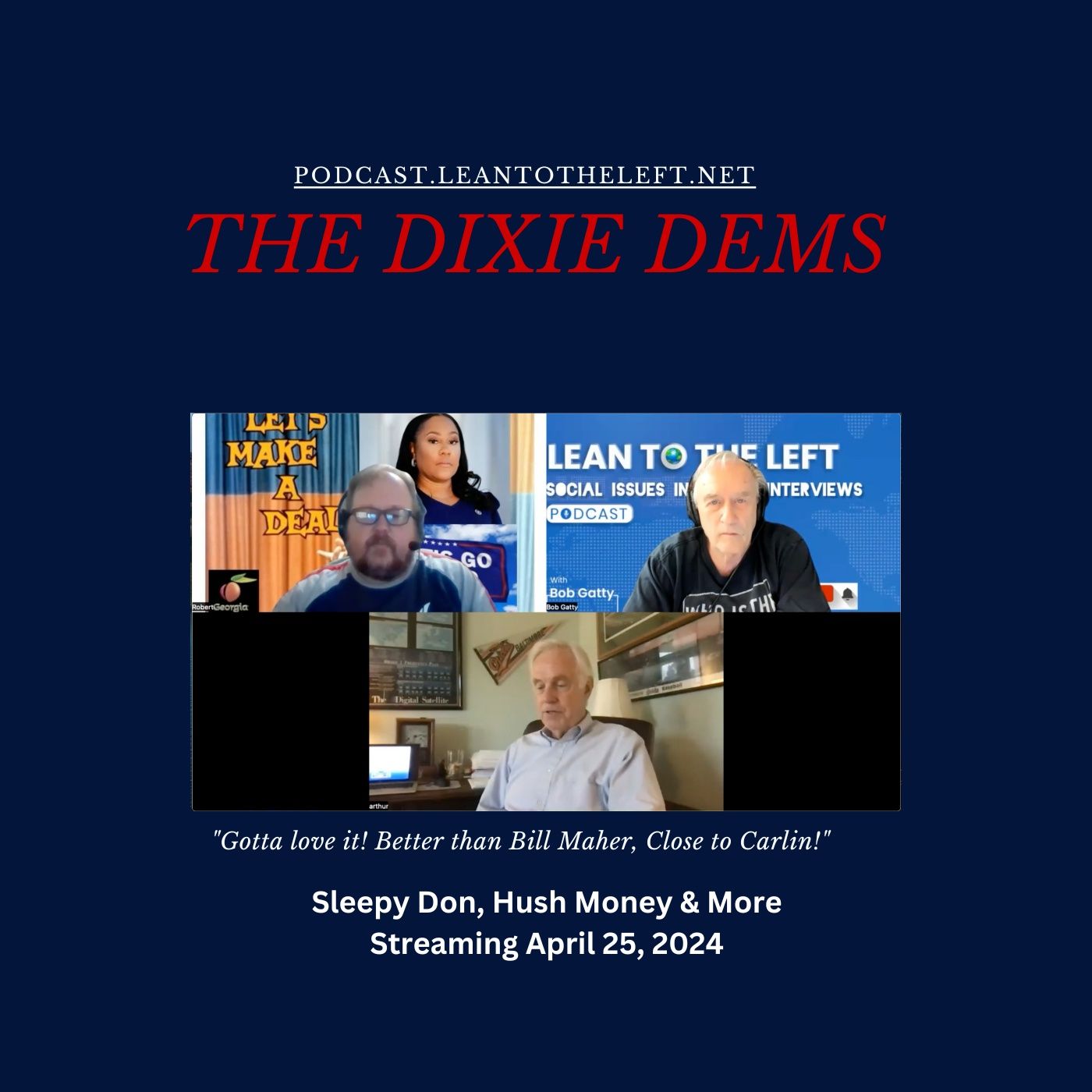
Dixie Dems-Sleepy Don, Hush Money & More
In this episode of the 'Lean to the Left' podcast, the Dixie Dems, composed of A -
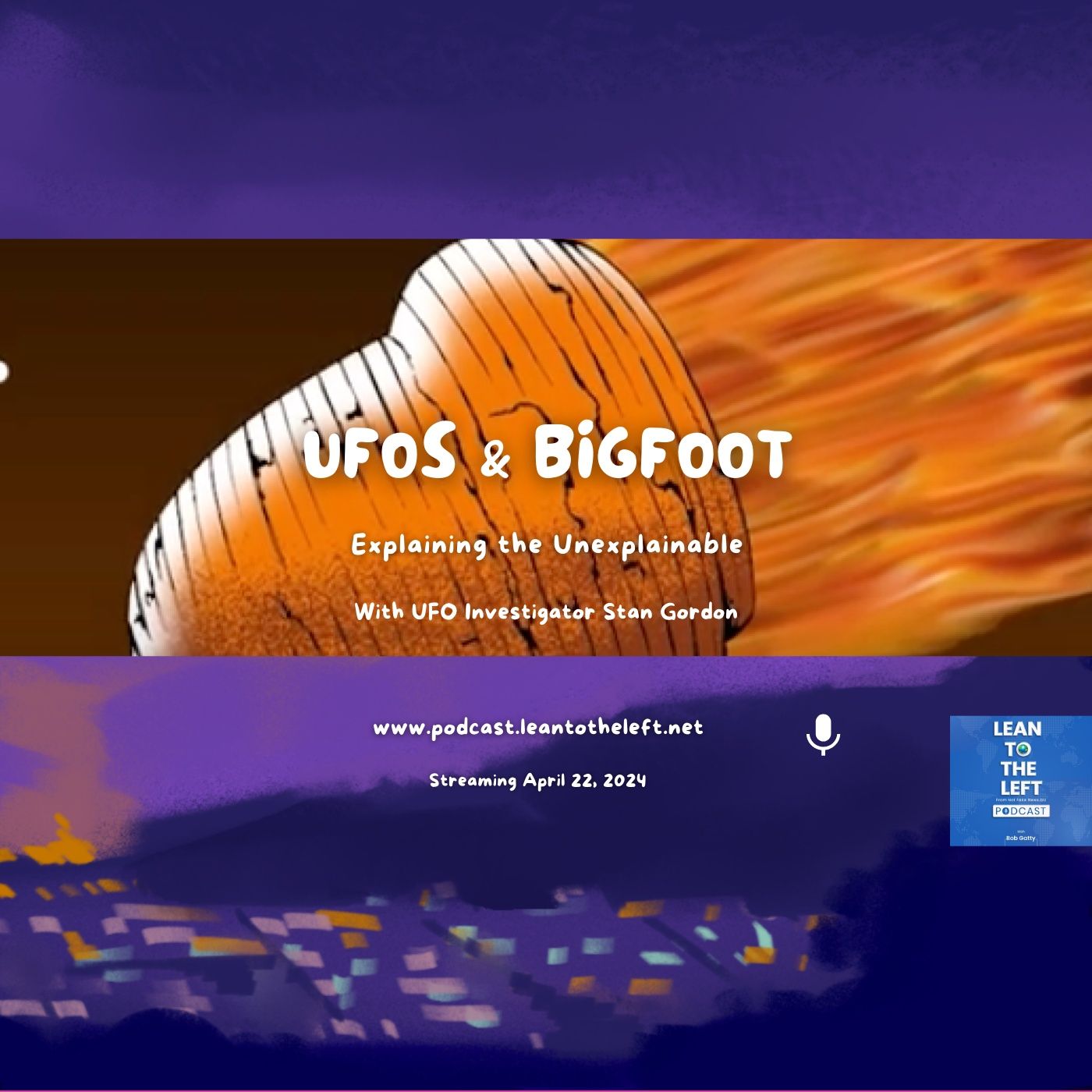
UFOs & Big Foot-Explaining the Unexplainable
Uncover the truth behind 'The Kecksburg UFO: The Story of the Century' with UFO -
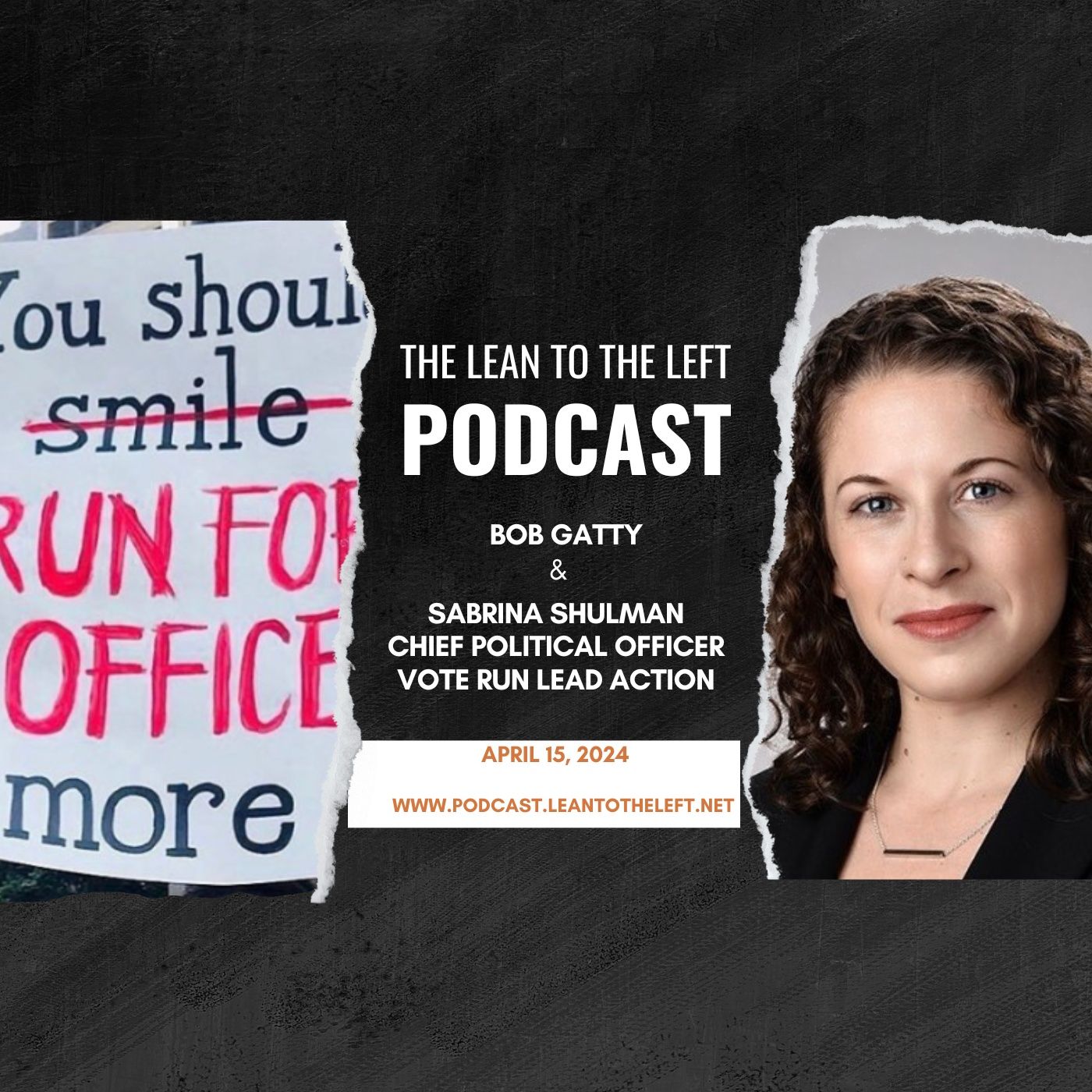
Calling Female Candidates
Women are 51 percent of the U.S. population, but only 33 percent of state legisl -
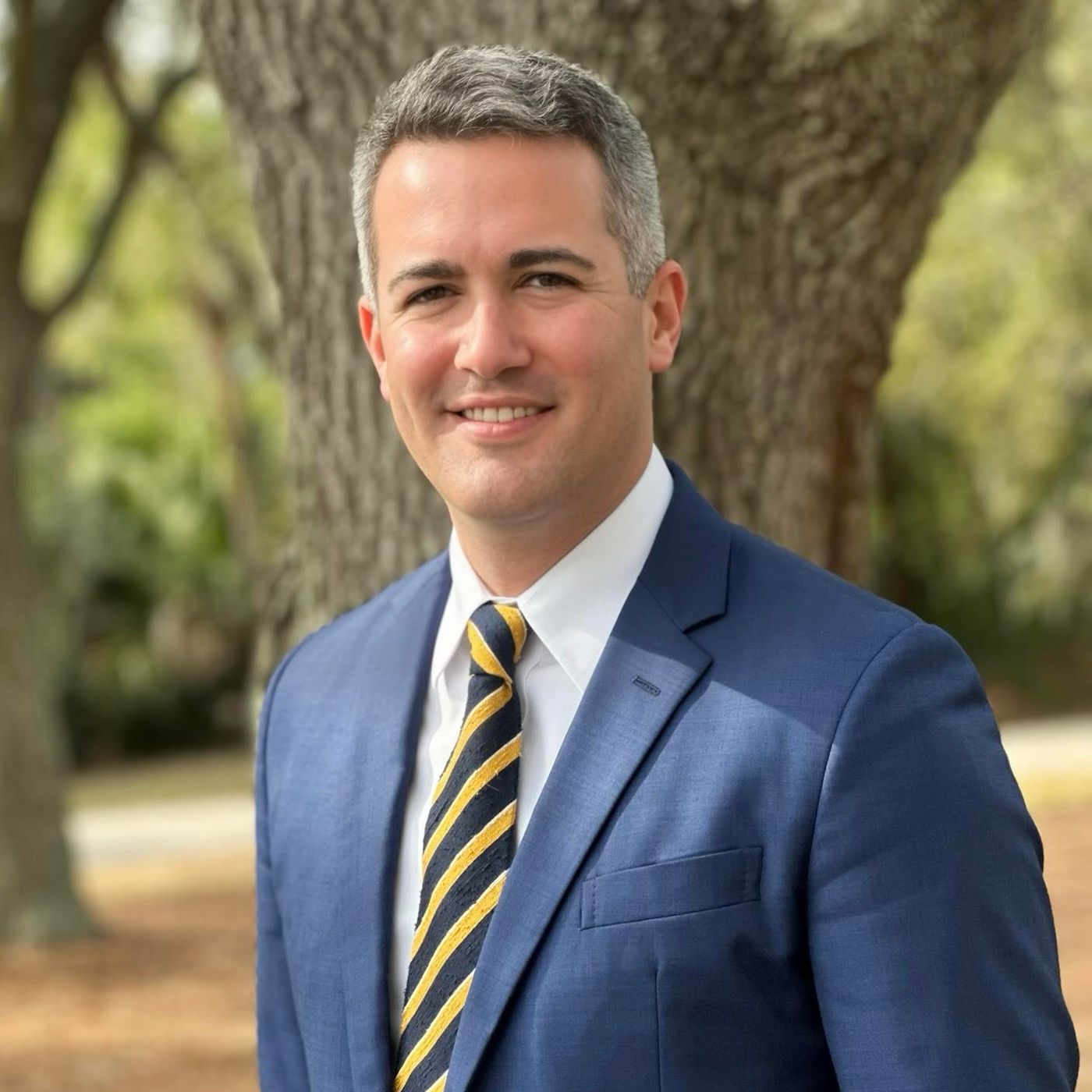
Mac Deford-Bucking the Odds in SC
In 2020, Republican Rep. Nancy Mace of South Carolina’s First Congressional Dist

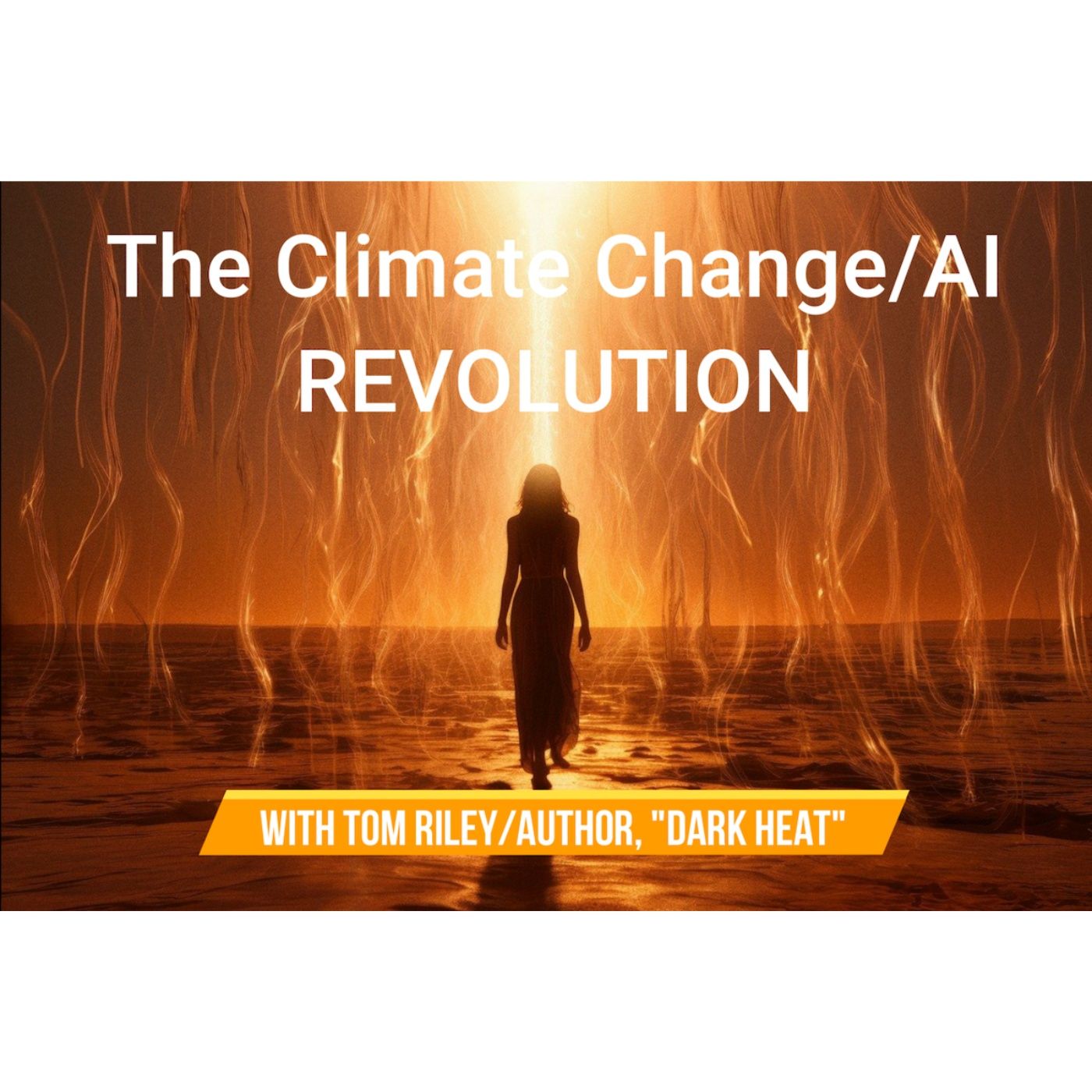
Comments & Upvotes